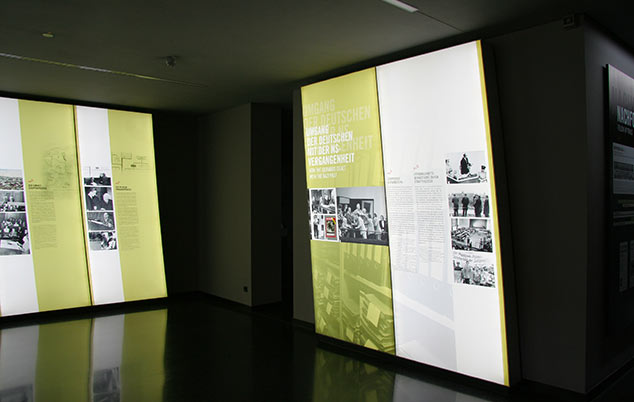
Initially, very little effort was made to address the Nazi past after the Federal Republic of Germany was founded in 1949. German courts responded to attempts to investigate Nazi crimes by continually dismissing cases, acquitting the defendants, and issuing mild verdicts. The efforts of individual criminal investigators, public prosecutors, and courts to prosecute these crimes came to naught. The legacy of the Nuremberg Trials was rejected out of hand in many instances.
A turning point was the Ulm Einsatzgruppen Trial of 1958, which was met with greater public interest and resulted in the formation in the same year of the "Central Office of the State Justice Administrations for the Investigation of National Socialist Crimes." This first step created the conditions for the systematic prosecution of Nazi perpetrators in the Federal Republic of Germany.
The trial conducted in Israel in 1961 against Adolf Eichmann, the Reich Security Head Office official who played an instrumental role in the mass deportations of Jews, also caused a stir in Germany. But it was the 1963-1965 Auschwitz Trial in Frankfurt, in which the Hesse Solicitor General Fritz Bauer played a pivotal role, that first brought the Nazis' murder of Jews to the forefront of public attention in Germany. However, this trial resulted in the conviction of only 17 SS members, and so did not provide a morally satisfactory answer to the crimes committed at Auschwitz.
The same can be said of the most extensive German criminal trial against Nazi officials involved with the Majdanek concentration and extermination camp, which was held in Düsseldorf from 1975 to 1981. More than 30 years after the crimes were committed, it was hardly possible to reconstruct the circumstances of every offense. The true value of these criminal trials against members of the Nazi regime was not the conviction of the perpetrators, but rather the effect they had on post-war German society, by forcing people to come to grips with their repressed past.



